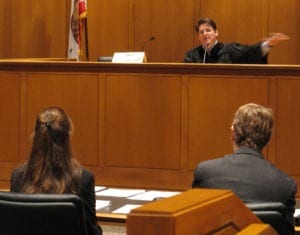DALLAS, TX – April 28, 2025 – The Rasansky Law Firm is proud to announce that Managing Partner Jeffrey Rasansky has once again been named to D Magazine’s prestigious list of the "Best […]
The New Year brings with it new legislative changes in Texas—and the rest of the country. In fact, quite a number of new laws have passed with very few Texans even realizing it. While many of these new laws can be considered mundane, others are impactful and are set to change the landscape in areas such as road safety, judicial oversight, and more. Today, we’ll take a look at some of these new laws, as well as touch on what they mean for citizens of the Lone Star State and the country at large.

HB 62 prohibits judges in Texas from holding financial stakes in correctional, institutional or rehabilitation facilities. This is seen as a move to eliminate any perceived bias or vested interests in cases that have to do with individuals being sent to the above facilities after sentencing. You may be reminded of the "kids for cash" scandal involving two Pennsylvania judges a few years back. This new law seeks to prevent this type of judicial abuse.
HB 3838 (also known as "Malorie's Law") now requires that motorcycles designed to carry more than one passenger be fitted with foot rests and handholds for passengers (which are already standard on many motorcycles). This law was named after Texas A&M student Malorie Bullock, who lost her life back in 2009. She was killed in a motorcycle accident while riding as a passenger—despite the fact that she was wearing a helmet. The law also requires that all motorcycle passengers must be at least five years old (except when riding in a sidecar).
SB 492 sets new licensing requirements and safety standards for prescribed pediatric extended-care centers to let Medicaid-eligible children receive medical care up until age 20. Despite the fact that this law took effect in 2013, portions dealing with general enforcement and administrative penalties just went into effect on January 1st, 2015. Starting now, one needs a license to own or operate such a center, and must obtain a license for each separately owned facility.
SB 426 takes effect on January 15th, 2015, and amends a law on home visits to allow specialists to provide vital services such as parenting classes to at risk-families in their homes.
HB 500 seeks to change the way franchise tax law is computed, excluding historic structures from paying taxes as well as providing them with tax credits.
Here’s a rundown of some of the more-interesting laws that were (or are soon set to be) enacted in other parts of the country in 2015:
These laws are just a fraction of the hundreds of laws that are set to come into effect as the New Year progresses. For more information on the new laws in Texas, visit the Legislative Reference Library of Texas.
Note: The information that was utilized in this post was gathered from the use of secondary sources. This information used has not been confirmed or independently verified. If you locate any information that is not correct, please contact our firm as soon as possible so that we can make the appropriate corrections. If you find any information that is false, we will remove or correct the post immediately after it is brought to our attention.
Disclaimer: As a valued member of the Dallas community, Rasansky Law Firm’s goal is to improve the safety of all residents in the great state of Texas. These posts should not be viewed as a solicitation for business and the information included herein should not be taken as medical or legal advice. The photos used in this post are not representative of the actual crash scene.
Over 30+ Years Of Personal Injury Experience
Top-Rated and Award-Winning Personal Injury Lawyers
Attorneys Available to Discuss Your Case Now
No Fee Unless You Win
Free Confidential Consultation.
Fill out the form below to receive a free and confidential initial consultation with an experienced personal injury lawyer.